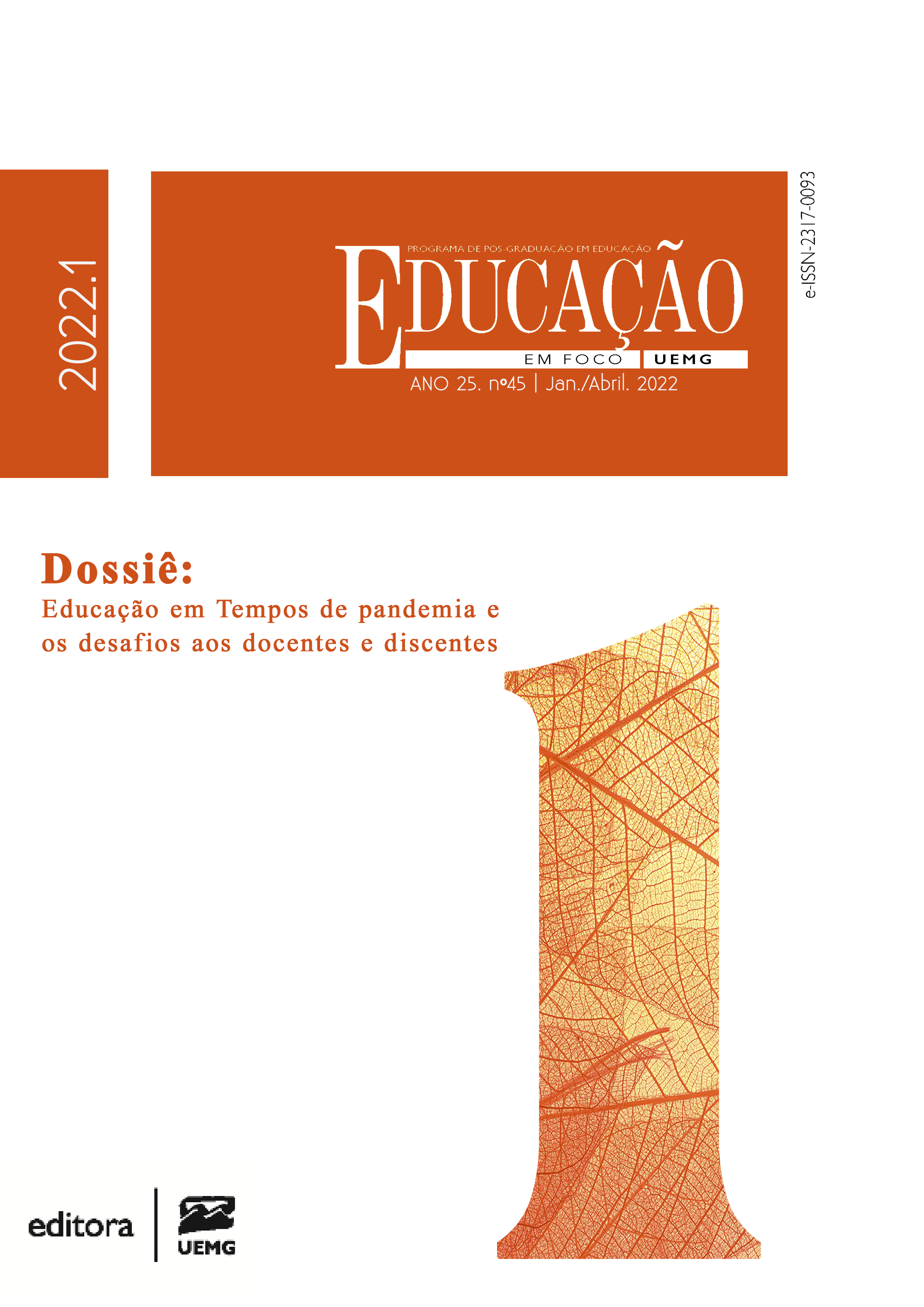Intercultural learning
perception of Argentine students from an at home experience of curricular internationalization in pandemic times
DOI:
https://doi.org/10.36704/eef.v25i45.6406Keywords:
Phenomenology, Mixed groups, Curriculum exchange, InterculturalityAbstract
We focused on an at home internationalization project developed by the Universidad Nacional del Litoral (UNL) from Argentina. We aimed to analyze intercultural learning from the perception of Argentine students who participated in mixed groups with Brazilian students from the Universidade Federal dos Vales do Jequitinhonha e Mucuri (UFVJM), in a curricular exchange experience in the second semester of 2020, developed remotely due to the Covid-19 pandemic. We adopted a qualitative approach based on the Phenomenology methodology, organizing the data collected from survey by the following topics: expectations, challenges and learning. We found that the students expect, perceive and evaluate working in mixed groups in an open way, taking alterity as an invitation. Even in face of difficulties as language and time organization, students positively evaluated the experience, listing intercultural learning such as empathy, listening and respect. Our findings shows that the experience of mixed groups materialized the central ideals of this project: openness, relationship and respect for the other in an intercultural experience.
Downloads
References
ALES BELLO, A. Culturas e religiões: uma leitura fenomenológica. Bauru, SP: Edusc, 1998.
ARAGONÉS, A. E. M.; PÉREZ, A. B. E. El aprendizaje intercultural. Portal del Servicio Nacional de Apoyo eTwinning. 2020. Disponível em: http://etwinning.es/es/el-aprendizaje-intercultural/. Acesso em: 3 nov. 2021.
BARBOSA, B.; SANTOS, C.; PRADO-MEZA, C. There is no one way to internationalization at home: Virtual mobility and student engagement through formal and informal approaches to curricula. Revista Lusófona de Educação, v. 47, p. 85-98, 2020. Disponível em: https://doi.org/10.24140/issn.1645-7250. Acesso em: 3 nov. 2021.
BYRAM, M. Assessing intercultural competence in language teaching. Sprogforum, v. 18, n. 6, p. 8-13, 2000.
CLEMENTE, F. A. S.; MOROSINI, M. C. Competências interculturais: interlocuções conceituais e uma proposta de releitura para a educação superior. Educação e Pesquisa. v. 46, e216262, 2020. Disponível em: https://doi.org/10.1590/S1678-4634202046216262. Acesso em: 3 nov. 2021.
CLÉRICO, G. M.; LEITE, R. V.; GUEDES, M. Interculturalidad en la internacionalização curricular de la educación superior en universidades argentinas y brasileñas: memorias de una red colaborativa del área de psicologia. In: SUZUKI, J. C. et al (Orgs.). Intelectuais em Circulação na América Latina: diálogos, intercâmbios, redes de sociabilidade. São Paulo: FFLCH/USP, 2021. p. 283-307.
INGÜI, P.; CLÉRICO, G. Interrogar la enseñanza de la Psicología desde la internacionalización curricular intercultural. Anuario de Investigaciones de la Facultad de Psicología, v. 4, n. 4, p. 110-129, 2020.
KNIGHT, J. Understanding Education Hubs within the Context of Crossborder Education. In: KNIGHT, J. (Org.). International Education Hubs: student, talent, knowledge-innovation models. New York: Springer, 2014. p. 13-27.
MAZZEO, R. Insegnare un metodo di studio. Torino: Il Capitello, 1997.
MOROSINI, M. C. Internacionalização do currículo: produção em organismos multilaterais. Roteiro, v. 43, n. 1, p. 115-132, jan./abr. 2018. Disponível em:
https://portalperiodicos.unoesc.edu.br/roteiro/article/view/13090. Acesso em: 3 nov. 2021.
LÓPEZ SÁENZ, C. Enseñar a pensar desde la Fenomenología. Ialateia: Philosophy and Children. 1998. Disponível em: https://www.bu.edu/wcp/Papers/Chil/ChilSaen.htm. Acesso em: 3 nov. 2021.
VAN DER LEEUW, G. Fenomenología de la religión. México: Fondo de Cultura Económica, 1964.
VINAGRE LARANJEIRA, M. El aprendizaje intercultural en entornos virtuales de colaboración. RESLA, v. 23, p. 297-317, 2010.
UNIVERSIDAD NACIONAL DEL LITORAL. RESOLUCION RECTORAL Nº 529/19. Aprobación de proyectos de internacionalización curricular de espacios de grado. 2019.
UNESCO - ORGANIZAÇÃO DAS NAÇÕES UNIDAS PARA A EDUCAÇÃO, A CIÊNCIA E A CULTURA. Directrices de la UNESCO sobre la educación intercultural. Sección de Educación para la Paz y los Derechos Humanos División de Promoción de la Educación de Calidad Sector de Educación. UNESCO, París, 2006.
Downloads
Published
How to Cite
Issue
Section
License
Autores que publicam nesta revista mantêm os direitos autorais e concedem à revista o direito de primeira publicação, com o trabalho simultaneamente licenciado sob a Licença Creative Commons Attribution que permite o compartilhamento do trabalho com reconhecimento da autoria e publicação inicial nesta revista.
Autores têm autorização para assumir contratos adicionais separadamente, para distribuição não-exclusiva da versão do trabalho publicada nesta revista (ex.: publicar em repositório institucional ou como capítulo de livro), com reconhecimento de autoria e publicação inicial nesta revista.


















